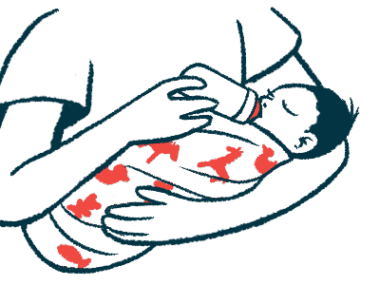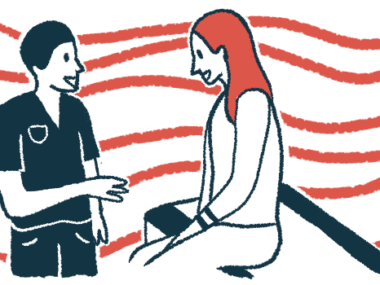Planning my big fat Long Island wedding around my PNH treatment
Even my honeymoon had to work around my schedule of Soliris infusions
Written by |

I’m from Long Island, New York, where couples choose either an over-the-top wedding or a down payment for a house; we chose a wedding. As in the movie “My Big Fat Greek Wedding,” my husband, John, and I had a day that required immense planning, many moving parts, and a Type A personality to coordinate.
The planning began before my paroxysmal nocturnal hemoglobinuria (PNH) diagnosis, when our biggest concern was the unpredictable weather. After my diagnosis, however, my top concern became my health on that long-awaited day and what we could do (if anything) to help avoid PNH problems. I was worried about not being able to enjoy my wedding day, which I’d dreamed of since I was a little girl, because of something I couldn’t control or predict.
My biweekly IV infusion schedule of the medication Soliris (eculizumab) was one of the first obstacles we faced in planning the wedding. We counted ahead every two weeks to determine when an infusion would land on the calendar. If my treatment fell on our wedding day, what was I going to do? Luckily, I didn’t have to answer that question, as it was scheduled for a few days before the big date.
Still, that treatment day caused problems. I had to pick up my wedding dress, get my nails done, tie up loose ends, and more, all while squeezing in a treatment during a busy week.
I also had to consider my treatment when mapping out our honeymoon. Knowing that I had an infusion scheduled every 14 days prevented us from booking a long vacation. Limiting our honeymoon because of my treatment was extremely disappointing. But since we got married in 2020, our travel plans were subject to other unpredictable factors. (COVID-19, I’m talking about you!)
But the key factor I considered when planning this important treatment was keeping it close to the wedding so I’d have the highest chance of feeling well on the big day. I ended up having my treatment on the Thursday before my Saturday wedding (enough time for a bruise to go away in case I got one from the IV).
The timeline of the wedding day was my next concern. With hair and makeup in the morning, ceremony in the afternoon, pictures afterward, then a late-night reception, I faced a 12-hours-plus ordeal, and I wasn’t sure my energy level could handle it. The game plan was to use the open pockets of time between each stage of the day for rest, food, and water (all equally important variables in my PNH energy level).
Waking up on our wedding day, I of course felt butterflies, but luckily no PNH symptoms. The day was filled with love, laughter, and pure happiness. I found myself so happily distracted by the celebration that at times I forgot I even had PNH until a symptom would remind me.
I had a few moments when I felt an overwhelming need to sit and eat something, but I’m grateful John came to my rescue when that happened. Communication with him, our families, the bridal party, and the wedding coordinator throughout the day really helped them know how to help me.
For years, I worked on planning the perfect wedding, dotting all my i’s and crossing all my t’s, but I couldn’t plan for what PNH would bring to the party. After going through this experience with the unpredictability of the disease, I found a few tools that helped set me up for success: resting and listening to my body for days beforehand to control as much as I could, coming up with a game plan if I started to feel sick during the event, and most important, remembering that PNH shouldn’t stop me from celebrating and enjoying life’s most significant moments.
Note: PNH News is strictly a news and information website about the disease. It does not provide medical advice, diagnosis, or treatment. This content is not intended to be a substitute for professional medical advice, diagnosis, or treatment. Always seek the advice of your physician or other qualified health provider with any questions you may have regarding a medical condition. Never disregard professional medical advice or delay in seeking it because of something you have read on this website. The opinions expressed in this column are not those of PNH News or its parent company, Bionews, and are intended to spark discussion about issues pertaining to paroxysmal nocturnal hemoglobinuria.






